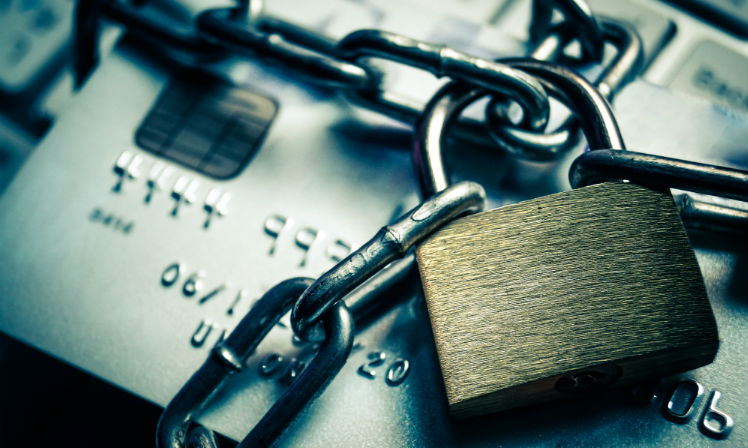Learning you are a victim of identity theft is a scary and often overwhelming experience. Unfortunately, there are organizations out there that will take advantage of individuals in this situation. They know that the average person has very limited knowledge, if any, of their rights.
One of the first steps victims are often told to do is to contact the three credit bureaus, TransUnion, Experian and Equifax. While this is good advice, there are a few things you need to know before calling them and a couple of details to keep in mind during the restoration process.
Placing Fraud Alerts
Federal law mandates that when you become a victim of identity theft, you are entitled to place a free 90-day fraud alert on your credit reports. A fraud alert is a statement or disclaimer that is placed on your credit report warning creditors that you are a victim of identity theft. You have the option to include your phone number in this alert, and if you do so, creditors are supposed to contact you before issuing new credit.
While this may deter identity theft, it is only good for 90 days and then it expires. You do have the option of renewing the alert, but you must remember to contact the bureaus every 90 days to do so.
To place an alert, you are told that you only need to call one credit bureau, as that bureau will notify the other two. While this is true, in my opinion, this is not the most efficient method. When placing a fraud alert, it is best to contact each bureau directly.
You have the option of placing a seven-year extension on your fraud alert. To do so, you must send a copy of your police report and supporting identification to each credit bureau. To learn more, contact each credit bureau directly.
- TransUnion
1-800-680-7289 - Experian
1-888-397-3742 - Equifax
1-888-766-0008
While a fraud alert offers some protection from credit-related identity theft, it cannot “lock down your credit.”
Implementing a Credit Freeze
To truly “lock down your credit,” you would need to consider implementing a credit freeze, which is also known as a security freeze, on your credit reports. With a fraud alert, the potential creditors are able to receive and review your credit report. With a credit freeze, however, potential creditors cannot see your report. If creditors cannot obtain your credit report, it greatly reduces, if not eliminates, the chance of fraudulent accounts being opened.
A freeze is the closest thing you can get to locking down your credit. To determine if you have successfully placed a freeze, check to see that you have a PIN number. This PIN number is required to temporarily lift or remove your freeze. If you do not have a PIN number, then you only have a fraud alert in place. Additional information on how to implement a credit freeze is available here.
Your Free Credit Reports
Contacting all three credit bureaus yourself when placing a fraud alert also allows you to request a free copy of your credit report. Because the bureaus are required to provide the report for free, it is an expense to them. Therefore, they may not tell you that you can request a free report. More than likely you will need ask for it. You should also know that this free report is in addition to the free one you are entitled to receive every twelve months from each bureau.
If you did not request your free credit report while placing your fraud alert, you can still do so. You can request your reports online or by phone or mail. If you choose the online method, the only websites to use are the credit bureaus’ sites or the Annual Credit Report site. Don’t be surprised if a credit bureau’s website redirects you to the Annual Credit Report site, since it was created by the Federal Trade Commission and the three main bureaus to make it easier for you to obtain your free reports. Do NOT make the mistake of searching the internet for “free credit reports.” Doing so could result in you paying for a service unnecessarily, permitting a company to share or sell your information or giving your information to criminals.
Credit Scores
When requesting your free credit report, you may be offered your credit score for a fee. This is because credit scores are not included with the free reports. If you want your score, you must pay for it. Unless you are applying for new credit, you do not need this information because it is not an efficient tool to monitor for identity theft. Believe it or not, I have had clients who had their credit scores increase because they were victims of identity theft. As crazy as that may sound, it is true.
In one case, the victim’s identity was being used by someone who was in this country illegally. Besides being here illegally, the thief was managing her new identity responsibly. She had obtained a job, opened a bank account, taken out a car loan and obtained a credit card. Because the thief paid her bills on time, the victim’s credit score actually increased.
Your Identity Theft Report
Now that your fraud alert is in place and you have obtained your credit reports, it is time to mitigate your current issue. This may be for a fraudulent new credit account, a fraudulent transaction on your current account or any of the numerous other types of identity theft. When mitigating these issues, you may be asked to provide your identity theft report. Most people incorrectly assume this is simply a copy of the police report. It is this assumption that can delay the restoration of your identity.
An identity theft report consists of both your police report and the Federal Trade Commission’s Identity Theft Affidavit. Together, these two items make up your identity theft report.
While this is not an exhaustive list of cautions and considerations, it will help you get past the first few obstacles when attempting to restore your identity. Just remember that you have rights and that you are entitled to receive those rights. It is up to you to request what is rightfully yours.

